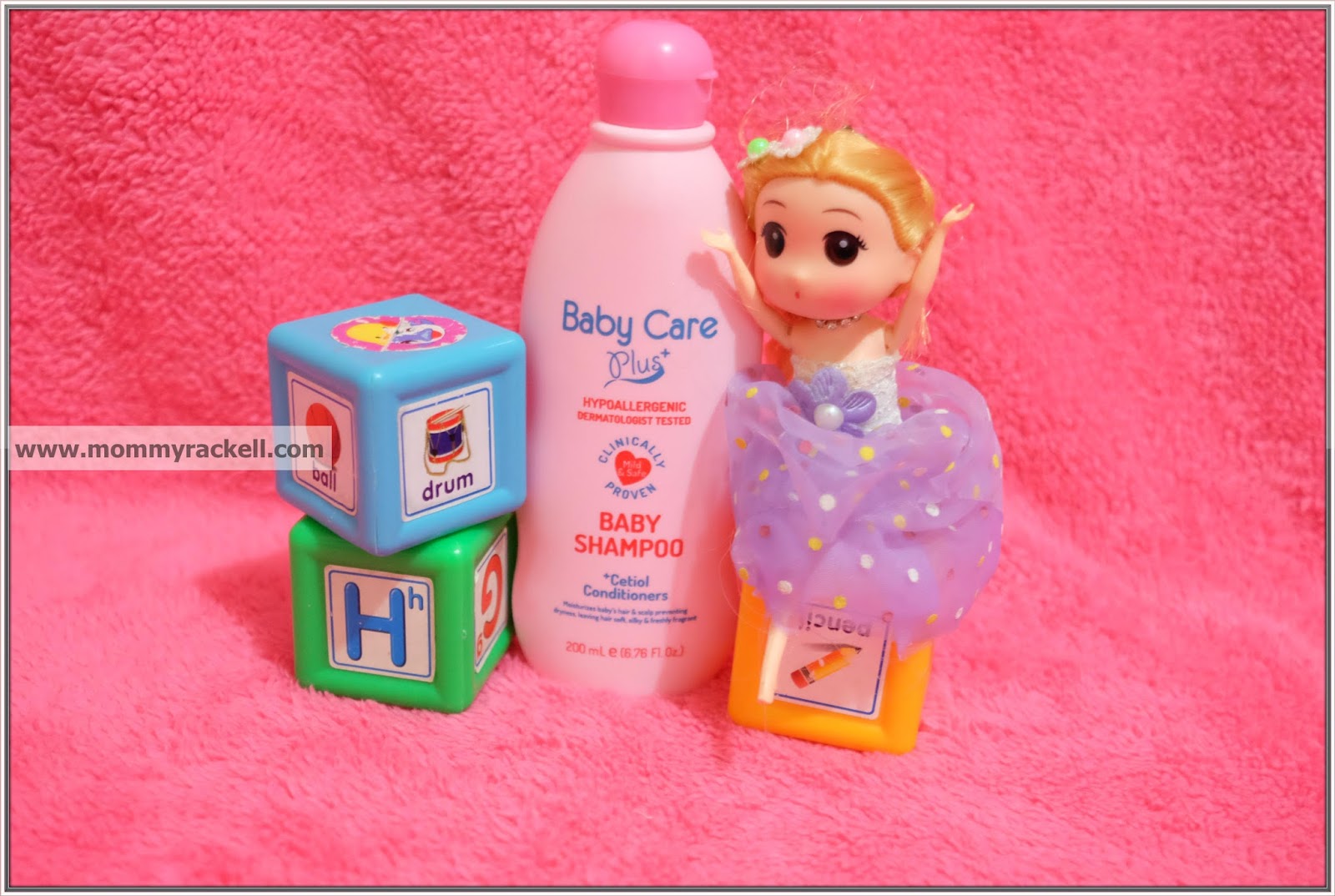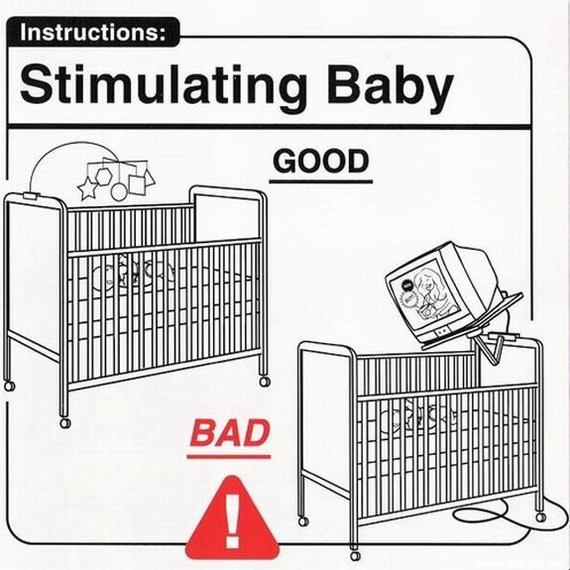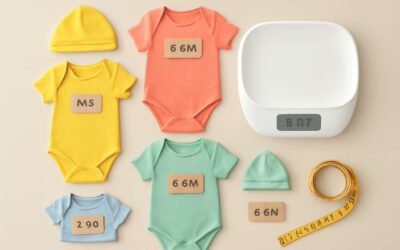Understanding the Baby Clothing Market
Market Trends and Growth Opportunities
The baby clothing market continues to evolve at a remarkable pace, driven by shifting consumer preferences and a growing emphasis on sustainable fashion. Recent reports indicate that global sales of baby apparel are expected to surpass £15 billion within the next few years, reflecting a robust demand for quality, comfort, and style. For entrepreneurs eyeing a baby clothing business for sale, understanding current market trends is essential to seize opportunities and carve out a niche.
One notable trend shaping the industry is the increasing preference for organic and eco-friendly fabrics. Parents are willing to pay a premium for clothing that is safe for their children and environmentally responsible. Additionally, customised and gender-neutral designs are gaining popularity, offering differentiation in an often saturated market. Recognising these shifts can help potential buyers identify growth opportunities within a baby clothing business for sale.
Market growth is also supported by demographic shifts and rising urbanisation, which influence shopping habits and brand loyalty. For those considering acquiring a baby clothing business for sale, staying attuned to these trends can unlock new avenues for expansion and innovation. Ultimately, the future of this sector hinges on adaptability and a genuine understanding of what modern parents seek in their children’s apparel.
Consumer Demand and Preferences
Consumer demand for baby clothing is a reflection of deeper values — an intrinsic desire to nurture, protect, and provide comfort. Modern parents are not merely seeking functional garments; they crave pieces that resonate with their moral compass and aesthetic sensibilities. When exploring a baby clothing business for sale, it’s vital to recognise that buyers are looking for more than just quality; they seek alignment with these evolving preferences.
Today’s parents are increasingly drawn towards sustainable fashion, prioritising organic fabrics that minimise environmental impact. This shift is driven by a profound awareness of the moral implications of their choices. Within the marketplace, there’s a notable rise in interest for gender-neutral designs, which challenge traditional stereotypes and foster inclusivity. These preferences aren’t fleeting trends but symbols of a broader cultural movement that values authenticity and social responsibility.
Understanding these nuances enhances the appeal of a baby clothing business for sale. Buyers want assurance that their investment caters to the nuanced needs of modern families. The market’s pulse is driven by a desire for authenticity, safety, and style—elements that define the core of consumer demand in today’s competitive landscape.
Key Demographics and Target Audience
Understanding the core demographics of the baby clothing market is essential when evaluating a baby clothing business for sale. Modern parents are incredibly discerning, seeking more than just cute outfits—they want pieces that reflect their values and lifestyle. The primary target audience includes health-conscious, environmentally aware families who prioritise organic fabrics and sustainable practices. These consumers often belong to the millennial and Gen Z segments, characterised by their desire for authenticity and inclusivity.
In addition, a significant portion of the market is drawn to gender-neutral designs, challenging traditional stereotypes and fostering a sense of social responsibility. When assessing a baby clothing business for sale, it’s crucial to recognise that these preferences influence purchasing decisions profoundly. Baby clothing brands that cater to these nuanced needs—offering safety, style, and sustainability—are more likely to resonate with today’s conscious parents.
- Young families with a strong ecological mindset
- Parents seeking gender-neutral and inclusive options
- Consumers prioritising organic, non-toxic fabrics
By aligning product offerings with these target groups, a buyer can tap into the growing demand for ethically produced, stylish baby clothing that meets the moral and aesthetic expectations of modern families. The right understanding of these demographics transforms a simple transaction into a meaningful connection—an essential factor for success in the thriving market of a baby clothing business for sale.
Benefits of Investing in a Baby Clothing Business
High Demand and Recurrent Purchases
Investing in a baby clothing business for sale offers an alluring blend of stability and growth potential. The inherent high demand for baby apparel ensures a steady stream of customers eager to dress their little ones in the latest styles. Parents’ desire for comfort, quality, and adorable designs means recurrent purchases—each visit to the store or online platform reinforces brand loyalty and encourages repeat business. This cyclical nature of consumer behaviour transforms a baby clothing business for sale into a reliable source of income, even amidst fluctuating economic climates.
Moreover, the emotional bond parents have with their children fuels continuous spending on clothing that reflects their love and care. A well-positioned baby clothing business can capitalise on this devotion by offering innovative designs, sustainable fabrics, and personalised options. The recurring purchase cycle—replenishing sizes, seasonal updates, or special occasions—creates a resilient revenue stream, making a baby clothing business for sale not just a lucrative opportunity but a chance to shape cherished childhood memories for countless families.
Brand Loyalty and Customer Retention
In the intricate dance of commerce, few sectors evoke such profound emotional resonance as the baby clothing business for sale. Here, loyalty isn’t merely transactional; it’s woven into the very fabric of parental devotion. When nurturing a brand that parents trust for their child’s comfort and style, the connection deepens beyond mere purchase—forming a bond rooted in love and care. This affinity, once cultivated, transforms into unwavering customer retention, an invaluable asset in the competitive landscape.
Establishing a compelling brand identity within a baby clothing business for sale unlocks sustained patronage. Parents seek consistent quality, innovative designs, and personalised touches—elements that foster a sense of community and loyalty. Building this emotional rapport encourages repeat visits, whether online or in-store, reinforcing the cyclical nature of consumer behaviour. Such loyalty not only sustains revenue but also magnifies word-of-mouth referrals, vital for long-term growth.
To capitalise on this, many successful ventures prioritise creating a memorable customer experience—offering bespoke options, seasonal collections, and eco-friendly fabrics that resonate with modern parental values. This strategic focus cultivates a dedicated clientele, turning casual buyers into brand ambassadors. Ultimately, a baby clothing business for sale that nurtures genuine relationships becomes an enduring enterprise, thriving on the trust and heartfelt connections that only a brand rooted in love can inspire.
Potential for Expansion and Diversification
Investing in a baby clothing business for sale offers a universe of potential that extends beyond initial growth. The sector’s resilience and consistent demand create a fertile ground for expansion and diversification, turning a promising venture into a thriving empire. With the right foundation, entrepreneurs can explore new markets, introduce innovative product lines, and even expand into related niches such as maternity wear or eco-friendly accessories. The flexibility of a baby clothing business for sale allows for creative reinvention—crafting seasonal collections or personalised options that captivate modern parents’ hearts.
Furthermore, diversification can be approached strategically by leveraging existing brand loyalty to introduce complementary offerings. For example, a baby clothing business for sale can seamlessly incorporate accessories like specialised shoes, plush toys, or organic skincare, broadening revenue streams. This adaptability not only secures long-term stability but also elevates the brand’s presence in a competitive landscape. The potential for growth is palpable, making a baby clothing business for sale an alluring prospect for visionary entrepreneurs eager to nurture a brand with both emotional resonance and commercial vigour.
Types of Baby Clothing Businesses for Sale
Established Online Retailers
Within the bustling marketplace of baby clothing, established online retailers stand as compelling opportunities for those seeking a baby clothing business for sale. These digital storefronts often boast a loyal customer base, a streamlined supply chain, and a well-honed brand identity—elements that are crucial in a competitive industry. The appeal lies not only in their current revenue streams but also in their potential for expansion into niche segments or international markets.
Many of these businesses have carved out a niche by specialising in eco-friendly fabrics or customisable designs, which resonate with modern parents. This diversification often includes:
- Organic and sustainable baby clothing lines
- Luxury or premium baby apparel collections
- Subscription models for recurrent purchases
Acquiring an established online baby clothing business offers a unique vantage point into a thriving sector, blending tried-and-true branding with the agility of e-commerce. For entrepreneurs eyeing a swift entry into the baby clothing industry, these assets hold the promise of immediate market presence coupled with scalable growth potential.
Brick-and-Mortar Stores
Brick-and-mortar stores representing a tangible, tactile experience continue to hold a magnetic allure within the realm of baby clothing businesses for sale. For those craving a sensory connection—where customers can feel the softness of organic fabrics or marvel at bespoke embroidery—the physical storefront offers an irreplaceable edge. In this environment, brand loyalty is fostered through personalised service and immediate engagement, creating a sense of community that online platforms sometimes struggle to replicate.
Within this category, entrepreneurs often gravitate towards specialised niches that cater to discerning parents. These include:
- Luxury baby clothing boutiques with exclusive collections
- Specialist shops focusing on organic and sustainable fabrics
- Multi-brand outlets providing curated selections for different stages of infancy
Owning a baby clothing business for sale with a brick-and-mortar presence allows for a dynamic retail experience, blending the charm of personalised customer interactions with the potential for local brand dominance. This form of enterprise appeals especially to those seeking a tactile, community-driven approach amid a sea of digital competitors.
Dropshipping and Wholesale Opportunities
For aspiring entrepreneurs drawn to the world of baby clothing, exploring different business models can unlock unique avenues of success. Among these, dropshipping and wholesale opportunities stand out as flexible, scalable options for a baby clothing business for sale. Dropshipping allows you to operate without the hassle of inventory, partnering with suppliers who handle storage and shipping. This model is particularly appealing for those starting out or seeking lower overhead costs, as it minimises initial investment while offering a diverse product range.
Wholesale avenues, on the other hand, enable bulk purchasing directly from manufacturers or distributors, providing the capacity to build a specialised brand or expand an existing one. This approach often results in better profit margins and the chance to establish long-term relationships with trusted suppliers. Whether you prefer to curate a boutique collection or streamline a wholesale operation, these models open doors to a broad spectrum of growth potential within the baby clothing industry.
- Lower startup costs and reduced inventory risk with dropshipping.
- Greater control over product selection and branding through wholesale purchasing.
- Flexibility to scale operations according to market demands.
Both dropshipping and wholesale models are well-suited for a baby clothing business for sale, offering entrepreneurs the ability to adapt quickly and meet the evolving needs of modern parents. These options provide a compelling pathway to carve out a niche in this ever-growing market, where quality, variety, and convenience are highly prized.
Key Factors to Consider When Buying a Baby Clothing Business
Financial Health and Revenue Streams
When considering a baby clothing business for sale, understanding its financial health is fundamental. A business with steady revenue streams and positive profit margins signals a solid foundation and potential for growth. It’s essential to scrutinise financial documents meticulously, looking beyond surface figures to identify recurring income sources and seasonal fluctuations. A thriving baby clothing business for sale often relies on diversified revenue streams, such as online sales, wholesale contracts, and specialty boutiques, which cushion against market volatility.
Equally important is evaluating the sustainability of these revenue channels. For example, a loyal customer base or a strong online presence can translate into consistent cash flow. When assessing a baby clothing business for sale, consider the robustness of the revenue streams and their capacity for scaling. An established business with resilient finances can provide a smoother transition and peace of mind for prospective buyers. Ultimately, a comprehensive financial review is the cornerstone of making an informed investment in the ever-growing world of baby apparel.
Inventory and Supply Chain Management
When evaluating a baby clothing business for sale, inventory and supply chain management are critical elements that can make or break your investment. A well-organised supply chain ensures that you can meet customer demand without unnecessary delays or excess stock, which is especially vital in a competitive market. It’s worth scrutinising how suppliers are chosen, the lead times involved, and whether existing inventory levels are optimised for seasonal fluctuations.
Understanding the resilience of the supply chain can reveal if the business is vulnerable to disruptions. For instance, reliance on a single supplier or limited sourcing options can pose risks. An established baby clothing business for sale often benefits from diversified sourcing strategies, including local manufacturers and international partners, reducing exposure to geopolitical or logistical issues. Additionally, assessing inventory turnover rates can provide insights into operational efficiency and the potential for scaling the business in the future.
Brand Reputation and Customer Base
In the delicate tapestry of acquiring a baby clothing business for sale, one thread shines brighter than the rest: brand reputation and customer base. A brand that whispers trust and comfort into the hearts of parents creates an unbreakable bond—one that transforms occasional buyers into loyal patrons. When considering such a venture, it’s vital to gauge how the business’s reputation resonates within the community and online. A well-established brand not only garners repeat purchases but also paves the way for organic growth through word-of-mouth—a potent force in the realm of baby clothing.
Equally important is the character of the customer base. A diverse, engaged audience signals resilience and potential for expansion. To truly understand the strength of these bonds, scrutinise customer reviews, social media engagement, and the frequency of recurrent purchases. The depth of this relationship can often determine whether the baby clothing business for sale will thrive amidst shifting trends and evolving parental preferences.
Legal and Licensing Requirements
Embarking on the journey to acquire a baby clothing business for sale requires more than just a keen eye for adorable designs and market potential; it demands a thorough understanding of the legal and licensing landscape. In this enchanted realm of commerce, compliance is the enchanted spell that safeguards the venture from the shadows of legal pitfalls. Ensuring all necessary permits and licences are in place not only grants peace of mind but also lends credibility to the business’s reputation.
For those contemplating such a purchase, it is wise to delve into the specific legal requirements that govern baby clothing in your region. These may include safety standards, labelling laws, and health regulations—each a vital rune in the armour of lawful operation. To streamline this process, consider consulting with legal experts who specialise in retail or apparel law. They can illuminate the path, helping to verify that the baby clothing business for sale adheres to all statutory mandates.
Furthermore, a meticulous review of the business’s compliance documentation is essential. This could involve scrutinising health and safety certificates, import/export permits if applicable, and intellectual property rights related to branding and design. A business that has already woven these legal threads into its fabric offers a sturdy foundation for future growth and expansion—an unmissable treasure for any discerning buyer!
How to Find the Right Baby Clothing Business for Sale
Online Business Marketplaces
Finding the perfect baby clothing business for sale online requires a strategic approach. With the surge in demand for baby apparel, many entrepreneurs are exploring online marketplaces to discover promising opportunities. But how do you navigate the vast digital landscape to identify a reputable listing that aligns with your goals?
Start by focusing on well-known business marketplaces that specialise in small to medium-sized enterprises. These platforms often feature detailed profiles, including financial health, inventory status, and growth potential of the baby clothing business for sale. Look for listings that provide transparent information and verifiable data—these are crucial indicators of reliability.
- Verify the credibility of the platform hosting the listing.
- Review the seller’s background and business history.
- Examine the online reviews and ratings for added assurance.
It’s also wise to use filters to narrow down options based on location, price range, and business size. This way, you can compare different baby clothing businesses for sale effectively and make an informed choice—something that’s vital in a competitive market dominated by established online retailers and brick-and-mortar stores alike.

Business Brokers and Agents
Navigating the labyrinth of baby clothing business for sale opportunities can feel as daunting as assembling flat-pack furniture — without the instruction manual. That’s where business brokers and agents come into play, acting as your personal Sherpas in the mountain of potential deals. They possess the inside scoop, often holding listings that aren’t plastered all over the internet or buried deep within obscure forums.
Partnering with a reputable broker can save you from the pitfalls of shady deals or overpriced enterprises. Look for professionals with a proven track record in the baby clothing niche; their specialised knowledge can reveal hidden gems and provide insights on market trends.
- Verify the broker’s credentials and ask for references from past clients.
- Ensure they have a thorough understanding of the legal and licensing requirements for a baby clothing business for sale.
- Engage in transparent negotiations and ask pointed questions about the business’s financial health and growth potential.
A good broker isn’t just a middleman; they’re a strategic ally who transforms the search for a baby clothing business for sale from a chaotic scavenger hunt into a targeted expedition.
Networking and Industry Events
In the world of baby clothing business for sale, personal connections often open doors no online listing ever could. Industry events and networking gatherings are goldmines of opportunity, where genuine relationships are forged amidst the buzz of newborns and nursery decor. Attending these events allows you to meet industry insiders, suppliers, and even current owners contemplating a sale. It’s here that whispers of upcoming opportunities ripple through the crowd, offering a sneak peek into potential deals before they hit the open market.
To maximise your chances, consider engaging with professional organisations or local trade shows dedicated to baby products. These venues often host seminars and panels that deepen your understanding of market trends and emerging brands. Remember, building rapport with other entrepreneurs or small business owners can lead you to exclusive listings—sometimes even a baby clothing business for sale that’s yet to be formally advertised. Such personal connections may prove more valuable than any online search, transforming your pursuit from a shot in the dark into a targeted, heartfelt quest for the right opportunity.
Due Diligence and Valuation
Assessing Business Valuation Methods
Embarking on the journey to acquire a baby clothing business for sale demands meticulous due diligence—an essential step that can illuminate the true value behind the numbers. It’s not merely about scrutinising financial statements but about uncovering the story behind the figures, revealing hidden risks and opportunities that could shape your future success.

Assessing the valuation methods with a keen eye ensures you’re investing wisely. For a baby clothing business for sale, common approaches include earnings multiples, asset-based valuation, and market comparables. Each offers a unique perspective, helping you gauge whether the asking price aligns with the business’s potential.
To navigate this labyrinth of valuation, consider these key factors:
- Historical revenue growth
- Customer retention rates
- Brand strength in the competitive landscape
By combining these insights, you not only safeguard your investment but also unlock a deeper understanding of what makes a baby clothing business for sale truly valuable. With careful evaluation, you can step confidently into a world brimming with potential, where every detail counts toward building a thriving enterprise.
Analyzing Financial Statements
When considering a baby clothing business for sale, analysing financial statements is a critical step that can’t be overlooked. It’s not just about verifying profit and loss figures but understanding the underlying financial health of the business. Look beyond the surface—delve into cash flow statements, balance sheets, and income records to uncover the real story behind the numbers.
Assessing these documents helps identify potential red flags and growth opportunities. For example, fluctuations in revenue or inconsistent profit margins could signal underlying issues or untapped potential. To streamline this process, some buyers rely on a simple yet effective approach:
- Review revenue consistency over multiple periods.
- Analyse cost structures and profit margins.
- Compare inventory turnover rates.
By scrutinising these aspects, you gain a clearer picture of the financial stability and future prospects of the baby clothing business for sale. This thorough due diligence ensures your investment aligns with the actual value, helping you avoid costly surprises and set the stage for sustained success in this niche market.
Verifying Customer and Supplier Relationships
In the delicate dance of acquiring a baby clothing business for sale, verifying customer and supplier relationships is a task that often goes unnoticed—yet it’s as vital as checking the colour palette before a nursery debut. These relationships form the backbone of a thriving enterprise, ensuring consistent supply and loyal clientele. After all, what’s a brand without its trusted suppliers or a steady stream of repeat customers?
Thorough due diligence involves scrutinising contractual agreements, payment histories, and the longevity of these alliances. A robust supplier network, free from dependency on a single source, can spell the difference between a smooth transition and a costly disruption. Similarly, understanding customer loyalty—through repeat purchase rates and engagement metrics—can reveal whether the baby clothing business for sale has a loyal following or if its success is just a fleeting trend.
Some buyers prefer to employ a structured approach, such as:
- Interview key suppliers to gauge reliability and future capacity.
- Analyse customer databases for repeat purchase patterns.
- Review contractual terms for exclusivity clauses or potential renegotiation points.
By weaving these threads of due diligence into the fabric of your assessment, you gain an authentic picture of the business’s stability. It’s these nuanced insights that help you determine if that enticing baby clothing business for sale will truly fit into your long-term vision—without threadbare surprises unraveling your plans.
Financing Options and Investment Strategies
Bank Loans and Small Business Grants
Securing the right financing can transform a promising baby clothing business for sale into a thriving enterprise. While traditional bank loans remain a staple—offering sizeable capital with relatively low-interest rates—innovative options are resurfacing on the financial horizon. Small business grants, for instance, provide a non-repayable infusion of funds, especially appealing to entrepreneurs who prefer to avoid the pitfalls of debt. These grants often target niche markets, such as eco-friendly baby clothing, making them a strategic choice for discerning buyers.
When considering investment strategies, diversifying funding sources can be a shrewd move. For example, combining a bank loan with angel investors or crowdfunding campaigns can mitigate risk and expand financial flexibility. To streamline this process, here’s a quick overview of potential avenues:
- Bank loans with favourable interest rates
- Small business grants for innovative or eco-conscious baby clothing lines
- Angel investors seeking a stake in a promising baby clothing business for sale
- Crowdfunding platforms appealing to community-driven support
Indeed, understanding the nuances of each financing option ensures a more robust investment strategy, paving the way for sustainable growth and long-term success in the competitive realm of baby clothing retail.
Angel Investors and Venture Capital
Securing strategic investment is vital when entering a baby clothing business for sale, especially in a marketplace driven by evolving consumer preferences and ethical values. While traditional avenues like bank loans provide a reliable financial backbone, alternative funding sources such as angel investors and venture capital are increasingly shaping the landscape. These investors often seek innovative baby clothing brands that demonstrate growth potential and a unique market proposition.
Angel investors, in particular, can offer not only capital but also valuable mentorship, helping new entrepreneurs navigate industry complexities. Venture capitalists, on the other hand, are typically drawn to scalable models with high growth prospects. For a baby clothing business for sale, showcasing a compelling brand story and differentiation is essential to attract these high-impact financiers.
When considering investment strategies, diversifying funding sources can be notably advantageous. For example, combining angel investment with crowdfunding campaigns can broaden outreach and cultivate a community of loyal supporters. Such hybrid approaches often foster a more resilient financial foundation, enabling sustainable expansion in a crowded marketplace.
Seller Financing and Payment Terms
Financing options for a baby clothing business for sale often resemble a carefully curated tapestry, blending traditional and innovative threads to craft a resilient financial foundation. While bank loans and small business grants remain stalwart pillars, seller financing emerges as a flexible alternative, allowing buyers and sellers to forge a mutually beneficial payment plan. This approach often alleviates the stringent requirements of conventional lenders, creating an accessible pathway for entrepreneurs eager to step into the world of baby clothing retail.
Seller financing typically involves structured payment terms, with instalments that can be customised to suit both parties. For instance, a common arrangement might include a sizeable upfront deposit, followed by monthly or quarterly payments over a set period. Such arrangements can include:
- Interest rates that reflect market conditions
- Flexible repayment schedules aligned with cash flow
- Potential for partial equity transfer with early payments
These strategies not only facilitate a smoother acquisition process but also foster a sense of partnership, vital in the competitive landscape of baby clothing businesses. When exploring investment strategies, some entrepreneurs consider hybrid models—combining seller financing with other funding avenues like crowdfunding—to diversify capital sources and cultivate a community of dedicated supporters. The right mix of payment terms and strategic investment can transform a simple transaction into a launchpad for sustainable growth and market dominance.
Transition and Growth Post-Purchase
Managing Business Transition
Transitioning ownership of a baby clothing business for sale is a pivotal moment, akin to passing a cherished heirloom. It’s a delicate process that requires strategic planning and a nuanced understanding of the business’s core values. Managing this shift with care ensures that the brand’s reputation remains intact and customer loyalty endures, fostering a seamless continuation of the enterprise’s growth trajectory.
During this phase, transparency and open communication are vital. New owners should immerse themselves in the existing operational framework—understanding supply chain intricacies, supplier relationships, and customer preferences. A well-managed business transition doesn’t just preserve current revenue streams; it unlocks fresh avenues for innovation, such as diversifying product lines or expanding into new markets. For those seeking a baby clothing business for sale, recognising the importance of a smooth and strategic handover can mean the difference between stagnation and thriving expansion.
Implementing Marketing Strategies
Post-purchase, the real journey begins—transforming a baby clothing business for sale into a thriving enterprise. Implementing targeted marketing strategies breathes new life into the brand, connecting emotionally with parents and caregivers who value quality and comfort for their little ones. A heartfelt story behind the brand can foster genuine loyalty, turning first-time buyers into lifelong customers.
Effective marketing in this sector often hinges on authentic storytelling and community engagement. Consider leveraging social media platforms to share customer stories, showcase new product lines, and highlight sustainable manufacturing practices. Engaging content not only builds brand awareness but also nurtures a sense of trust and familiarity that is crucial in the baby clothing market.
To truly harness growth potential, some businesses opt for a multi-channel approach, including:
- Collaborations with parenting influencers
- Participation in local baby fairs
- Email campaigns tailored to seasonal needs
By aligning marketing efforts with customer preferences and demographic insights, a baby clothing business for sale can transition seamlessly into a new era of growth, fostering deeper connections within the community of parents eager to dress their children in style and comfort. Such strategic marketing not only sustains revenue but also enhances the brand’s reputation, paving the way for expansion and diversification in a competitive marketplace.
Expanding Product Lines and Markets
Once a baby clothing business for sale begins to establish a loyal customer base, the path to sustainable growth often involves expanding product lines and exploring new markets. Diversification isn’t merely about adding more items; it’s about aligning offerings with evolving consumer preferences and seasonal demands. For instance, introducing eco-friendly fabrics or specialised newborn collections can differentiate the brand in a crowded marketplace.
Market expansion can be achieved through strategic initiatives such as:
- Developing exclusive product lines for different age groups
- Targeting geographic regions with rising demand for unique baby apparel
- Partnering with online marketplaces to reach a broader audience
Adopting a multifaceted approach to growth ensures the baby clothing business for sale remains resilient and adaptable. It fosters deeper engagement within the community of parents and caregivers who seek high-quality, stylish, and sustainable clothing options for their children. As the market continues to evolve, so too must the business’s ability to innovate and connect, transforming a promising sale into a thriving enterprise poised for expansion.



0 Comments